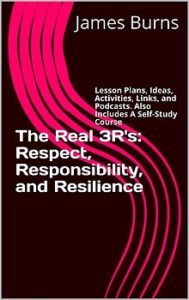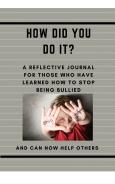by James Burns | Jan 18, 2018 | Grooming, James Burns, Parents

Why did our parents stand the test of time 50 years ago and stay married, and manage money so well? Why have the last 3 generations suffered so much financial difficulty, and been involved in one divorce after another? We observed our parents being financially responsible, and we observed our parents remaining married. The problem is we observed, but we never learned. It’s almost like watching a car mechanic fix a car, but never learning how to fix it ourselves. Wisdom, wise decisions, wise behavior, needs to be learned. We needed to know why our parent’s did what they did and we needed to be shown how to do it.
If society is going to develop the wisdom, common sense, or street smarts it has to start with grooming the kids of today and giving them the instruction they need to deal with money and relationships. When you get right down to it there really isn’t much else left. The challenge is great because parental role models are not as wise today as they were in days past. Parents can’t be asking their children what they want to be when they grow up, they have to taught the best career choices and then pointed in that direction. Parents have to teach their children how to handle money at a young age and show them how to save and invest for the future. Parents have to stop thinking that they don’t have a say in terms of who their children choose as a marriage partner. They have to speak up; if they believe that who their son or daughter is dating is not good for them they need to instruct them about the qualities they believe are important in a life partner. Society believes after a certain point that kids know what they’re doing and they’ll be fine. Parents don’t want to interfere. They don’t want to ram something down their kid’s throats. If parents don’t ram something down their kid’s throats some else will. If society is going to become wise again, it will have to spend more time teaching, and less time watching. We can start to teach our kids now when their young, or wring our hands as they get older and wonder where we went wrong.
by James Burns | Nov 3, 2017 | James Burns, Lesson Plans, The Real 3R's, Uncategorized
Respect, Responsibility, and Resiliency
It has been over ten years since I wrote “The New 3R’s in Education: Respect, Responsibility and Relationships and a lot has changed. Bullying is on the rise, addiction problems are at a staggering high, cyber crime and bullying are in the news every day, and school related issues never seem to go away. I put together The Real 3R’s with one thing in mind; to try and give teachers and maybe even parents some lesson plans that address how to teach respect, encourage responsibility, and to build resiliency in our children. These are not your garden variety lesson plans. They were written to include one plan for each of the 3R’s with the inclusion of suggestions, links, and podcasts that the reader can click on to listen to. If you purchase a hard copy of the book I have included the link where applicable so it can be copied into your browser. I have gone very narrow and very deep and tried to really hit a home run with the activities. I also included character qualities associated with each one of the 3R’s and in the area of resiliency have included some activities and suggestions that are related to these qualities that can be used in a classroom, or in a home. I have also included a bonus course at the end of the book as well
I am an anti bullying specialist and consultant. I have written and designed The Bully Proof Classroom that is offered at The College of New Jersey and La Salle University. Why is it important to tell you this now? As you listen to the podcasts included you will discover that they were produced as part of Anti Bullying 101 a book that I had written six years ago. I offer anti bullying tips on my website www.bullyproofclassroom.com, and I enjoy the process of creating podcasts on a variety of topics. Some of the podcast that you will listen to are announced with a date of the production, some were done on blog talk radio and may have and advertisement in the beginning, but all are very relevant today and at times they are even more relevant. Because of the bullying epidemic steps now have to be taken to address the needs of the victims of bullying. My hope is that these plans will address issue of resiliency and help to strengthen the victims going forward.
I see school related problems as intergenerational, and over the years we have compromised in many areas and have aloud what was once a small problem to grow to very large proportions leaving teachers dealing with student issues that may seem almost impossible to overcome. I sight these issues in an article that I wrote many years ago called “Everybody Knows.” You can access the article by clicking on the title or if you are reading a hard copy of the book I will include the link at the bottom of this page.
Enjoy
Jim

To Purchase The Book Click On The Book Image
Save
by James Burns | Feb 16, 2017 | James Burns, Kids and Stress, Parents, The Bully Proof Classroom
Huffington Post
10/31/2016 11:16 am ET | Updated Nov 02, 2016
Signe Whitson Author; School Counselor
In the last several years of working as a School Counselor and speaking with professionals, parents and students across the United States on the topic of Bullying Prevention, one of the observations that stands out to me the most is that parents, in general, are very eager to talk about bullying while their kids, on the other hand, seem to want to do anything but talk to their parents about this topic. The more parents pry, the more kids withdraw. The more parents push, the harder kids push-back — with excuses, minimizations, abrupt subject changes, stonewalling, silence, and sometimes even complete denial that a peer problem exists.
Read More
by James Burns | Jan 5, 2017 | Bully Proof Classroom, James Burns, Kryptonite, School Administrators, Teachers, Uncategorized
Before You Read This Book Please Read This
- In writing this book I interchange kid, student, child, and he and she. They all mean the same thing.
- I interchange parent, teacher and society. They all merely mean someone who is supposed to be in charge.
- You will find one intervention used for multiple behaviors. That’s because they work with different kids in many situations.
- I see many behaviors as being learned but don’t doubt that there may be organic problems that cause the behavior.
- I will not joust with anyone regarding conditions such as ADHD or ODD. My goal is to help create an understanding between what is a condition and what is a learned behavior.
- I don’t doubt that circumstances can give us reasons for certain behaviors; but there are no excuses.
- In my final thoughts I include an article “Everybody Knows” please read it. By the way you can find it on youtube and it is now a self study course that you can purchase here http://payhip.com/b/E1cs
- I am sure that there are many more behaviors that teachers and parents deal with other than the ones mentioned here.
- I am an Anti Bullying Consultant, retired principal, speaker, and writer. I have observed that most behaviors that we deal with are relationship based and disrespect, irresponsibility, and unkindness, apathy, and willful non-compliance pervades our society.
- Some things work some of the time but, nothings works all of the time.
- This is only volume one. If you have behaviors that you would like me to include in future volumes please email me at jameshburns55@gmail.com.
- Please read the articles associated with the behaviors and other supporting information in the appendix.
Introduction
There are people that we absolutely can’t stand. There are those that lie, cheat, and steal. There are whiners, complainers, gossip hounds, and sneaks. There are some who are so arrogant and are such a know it all that a conversation with them is almost painful. There are those that are so angry that we avoid telling them things that they don’t want to hear because we fear their reaction. Then there are those who are absolute criminals who don’t have a conscience who do things that are designed to inflict pain and suffering on other’s. Professionals who work with these people are trained to look beyond certain behaviors and convince themselves that they like the person but don’t like their behavior. Good luck if you are a teacher because kids who exhibit certain behaviors are just plain unlikeable, and in reality they know that they are unlikable and it may even be his/her way of getting the negative attention that he is starving for. The adults who exhibit some of the behaviors mentioned above were once kids who learned how to get away with things like disrespect, irresponsibility, and non-compliance as students and now have taken their deviance to a level that their life and the lives of others are being negatively impacted.
It doesn’t matter if it is organic or learned certain things just can’t be tolerated. Some of the behaviors are so inter-generational and so ingrained that that we can believe that the person is determined and that the apple doesn’t fall far from the tree and up bringing or genetics is the issue. In reality though we are only influenced by our genetics or upbringing and there has to be a switch in thinking as we change our response to negative influences. By the time a child starts kindergarten certain conclusions have already been drawn and he/she already believes that a temper tantrum gets the job done and I will get what I want when I want it. Until of course they discover something different and have to revert to deviance to get what they believe they are entitled to.
Behaviors like the ones just mentioned can’t be and should not be tolerated by schools or by society in general. Why; because they weaken families, systems, and classrooms. They become like Kryptonite and can begin to eat away at the moral fiber of society. For teachers life can become a nightmare when they have to deal with continual deviance and can’t do what they are paid to do and that’s to teach. Here are ten behaviors that I believe are like Classroom Kryptonite and if not dealt with early will do nothing more than prepare kids for a lifetime of misery who will try and shoehorn themselves into systems that will not accept their perception of life and their negative behavior.
We will assume that there are two reasons for negative behaviors; they are either learned or that they are organic meaning that there is some form of mental illness associated with the behavior that has affected a person’s judgment or has resulted in poor impulse control.
Kids often have what I call a “Choosing Disability.” In other words they have not developed the ability to make the correct choices and have trouble determining right and wrong behavior. There are reasons for poor choices but there are no excuses. Excuses when used can imply that we believe that the behavior should be excused with no consequences being imposed. Reasons explain the circumstance but regardless still hold the person accountable with a consequence. There is a short article that I wrote many years ago that offers a clear explanation. You can find it in the appendix as article one.
Order Your Copy By Clicking On the Image

Save
Save
by James Burns | Nov 26, 2016 | Bully Proof Classroom, James Burns, Motivation
By Teach Thought Staff
The best lessons, books, and materials in the world won’t get students excited about learning and willing to work hard if they’re not motivated.
Motivation, both intrinsic and extrinsic, is a key factor in the success of students at all stages of their education, and teachers can play a pivotal role in providing and encouraging that motivation in their students. Of course that’s much easier said than done, as all students are motivated differently and it takes time and a lot of effort to learn to get a classroom full of kids enthusiastic about learning, working hard, and pushing themselves to excel.
Even the most well-intentioned and educated teachers sometimes lack the skills to keep kids on track, so whether you’re a new teacher or an experienced one, try using these methods to motivate your students and to encourage them to live up to their true potential.
21 Simple Ideas To Improve Student Motivation
1. Give students a sense of control.
While guidance from a teacher is important to keeping kids on task and motivated, allowing students to have some choice and control over what happens in the classroom is actually one of the best ways to keep them engaged. For example, allowing students to choose the type of assignment they do or which problems to work on can give them a sense of control that may just motivate them to do more.
2. Define the objectives.
It can be very frustrating for students to complete an assignment or even to behave in class if there aren’t clearly defined objectives. Students want and need to know what is expected of them in order to stay motivated to work. At the beginning of the year, lay out clear objectives, rules, and expectations of students so that there is no confusion and students have goals to work towards.
3. Create a threat-free environment.
While students do need to understand that there are consequences to their actions, far more motivating for students than threats are positive reinforcements. When teachers create a safe, supportive environment for students, affirming their belief in a student’s abilities rather than laying out the consequences of not doing things, students are much more likely to get and stay motivated to do their work. At the end of the day, students will fulfill the expectations that the adults around them communicate, so focus on can, not can’t.
4. Change your scenery.
A classroom is a great place for learning, but sitting at a desk day in and day out can make school start to seem a bit dull for some students. To renew interest in the subject matter or just in learning in general, give your students a chance to get out of the classroom. Take field trips, bring in speakers, or even just head to the library for some research. The brain loves novelty and a new setting can be just what some students need to stay motivated to learn.
5. Offer varied experiences.
Not all students will respond to lessons in the same way. For some, hands-on experiences may be the best. Others may love to read books quietly or to work in groups. In order to keep all students motivated, mix up your lessons so that students with different preferences will each get time focused on the things they like best. Doing so will help students stay engaged and pay attention.
6. Use positive competition.
Competition in the classroom isn’t always a bad thing, and in some cases can motivate students to try harder and work to excel. Work to foster a friendly spirit of competition in your classroom, perhaps through group games related to the material or other opportunities for students to show off their knowledge.
7. Offer rewards.
Everyone likes getting rewards, and offering your students the chance to earn them is an excellent source of motivation. Things like pizza parties, watching movies, or even something as simple as a sticker on a paper can make students work harder and really aim to achieve. Consider the personalities and needs of your students to determine appropriate rewards for your class.
8. Give students responsibility.
Assigning students classroom jobs is a great way to build a community and to give students a sense of motivation. Most students will see classroom jobs as a privilege rather than a burden and will work hard to ensure that they, and other students, are meeting expectations. It can also be useful to allow students to take turns leading activities or helping out so that each feels important and valued.
9. Allow students to work together.
While not all students will jump at the chance to work in groups, many will find it fun to try to solve problems, do experiments, and work on projects with other students. The social interaction can get them excited about things in the classroom and students can motivate one another to reach a goal. Teachers need to ensure that groups are balanced and fair, however, so that some students aren’t doing more work than others.
10. Give praise when earned.
There is no other form of motivation that works quite as well as encouragement. Even as adults we crave recognition and praise, and students at any age are no exception. Teachers can give students a bounty of motivation by rewarding success publicly, giving praise for a job well done, and sharing exemplary work.
11. Encourage self-reflection.
Most kids want to succeed; they just need help figuring out what they need to do in order to get there. One way to motivate your students is to get them to take a hard look at themselves and determine their own strengths and weaknesses. Students are often much more motivated by creating these kinds of critiques of themselves than by having a teacher do it for them, as it makes them feel in charge of creating their own objectives and goals.
12. Be excited.
One of the best ways to get your students motivated is to share your enthusiasm. When you’re excited about teaching, they’ll be much more excited about learning. It’s that simple.
13. Know your students.
Getting to know your students is about more than just memorizing their names. Students need to know that their teacher has a genuine interest in them and cares about them and their success. When students feel appreciated it creates a safe learning environment and motivates them to work harder, as they want to get praise and good feedback from someone they feel knows and respects them as individuals.
14. Harness student interests.
Knowing your students also has some other benefits, namely that it allows you to relate classroom material to things that students are interested in or have experienced. Teachers can use these interests to make things more interesting and relatable to students, keeping students motivated for longer.
15. Help students find intrinsic motivation.
It can be great to help students get motivated, but at the end of the day they need to be able to generate their own motivation. Helping students find their own personal reasons for doing class work and working hard, whether because they find material interesting, want to go to college, or just love to learn, is one of the most powerful gifts you can give them.
16. Manage student anxiety.
Some students find the prospect of not doing well so anxiety-inducing that it becomes a self-fulfilling prophecy. For these students, teachers may find that they are most motivated by learning that struggling with a subject isn’t the end of the world. Offer support no matter what the end result is and ensure that students don’t feel so overwhelmed by expectations that they just give up.
17. Make goals high but attainable.
If you’re not pushing your students to do more than the bare minimum, most won’t seek to push themselves on their own. Students like to be challenged and will work to achieve high expectations so long as they believe those goals to be within their reach, so don’t be afraid to push students to get more out of them.
18. Give feedback and offer chances to improve.
Students who struggle with class work can sometimes feel frustrated and get down on themselves, draining motivation. In these situations it’s critical that teachers help students to learn exactly where they went wrong and how they can improve next time. Figuring out a method to get where students want to be can also help them to stay motivated to work hard.
19. Track progress.
It can be hard for students to see just how far they’ve come, especially with subjects that are difficult for them. Tracking can come in handy in the classroom, not only for teachers but also for students. Teachers can use this as a way to motivate students, allowing them to see visually just how much they are learning and improving as the year goes on.
20. Make things fun.
Not all class work needs to be a game or a good time, but students who see school as a place where they can have fun will be more motivated to pay attention and do the work that’s required of them than those who regard it as a chore. Adding fun activities into your school day can help students who struggle to stay engaged and make the classroom a much more friendly place for all students.
21. Provide opportunities for success.
Students, even the best ones, can become frustrated and demotivated when they feel like they’re struggling or not getting the recognition that other students are. Make sure that all students get a chance to play to their strengths and feel included and valued. It can make a world of difference in their motivation.









